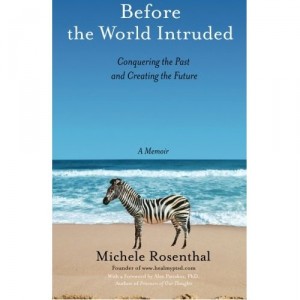Archive for the ‘fear’ Category
The Ongoing Adventures of GrayBall-The-Brain ~ This episode: “The Worried Psychic.”
Monday, November 4th, 2019 “I no longer question whether or not the future can be changed. Instead, I question whether or not the future exists as future. I think not.” (jc)
“I no longer question whether or not the future can be changed. Instead, I question whether or not the future exists as future. I think not.” (jc)
I’ve never met anyone who didn’t want happiness and peace of mind. All living creatures want to be okay.
I think it’s built into the Big-Bang Blueprint.
Even people obsessed with acquiring objects are trying to get something they believe is vital to their well-being. They just go about it poorly thinking that owning things is the secret to having peace.
It isn’t.
GrayBall-The-Brain, the principal in our story, (henceforth known as GrayBall for short, or Brain for shorter) has some peculiar behaviors. I want to discuss its tendency to compare, looking for negative, scary things. It’s a survival mechanism. Had it been unable to distinguish between what’s helpful or harmful, none of us would be here.
But when basic survival skills for GrayBall become obsessions of the mind, unhappiness becomes a lifestyle; a way of being.
That’s what happens when Brain compares what it desires to what it actually has. Thinking that it needs the object of its desire to be happy, GrayBall feels unhappy NOW, begins to worry, and becomes anxious about its future. It might never get what it wants.
You know anyone like that?
I do. I have a friend who says she worries about everything.
“Everything is a lot to be worried about,” I said.
I asked her to make a list.
She did. It really was everything.
Yikes!
The last item was ‘worried about being worried.’ Kind of a tough spot she’s in, wouldn’t you say?
Strictly speaking, no one can be worried about everything because no one knows what everything is. So, we got to work and narrowed it down to specifics.
If you’re worried about future events that may or may not happen,
you’re worried about something that isn’t real.
All the items on her revised list were of possible-scary-future events. And fear and worry are future dependent.
Nobody worries about what might happen in their past, because the past is over.
No one worries about an event that occurred in their past, either–unless they’re thinking about how it might effect their future. See?
My friend was focusing on the scary things that might or could, happen.
But what might happen, also might not happen. Almost anything could happen, but it also could not happen. And most things that could’ve happened–never did happen. (Think about that one.)
Anyway, I’m very worried about her. (Ahem)
My young friend was anticipating disaster instead of planning for the best and watching for the unexpected,. That’s what scared her.
But nothing on her list was real as a concrete fact. GrayBall-the-Brain was playing the worried psychic.
I said, “If you can predict the future, why not become a professional psychic. You’d get rich, and your money worries will disappear.”
She asked me what she should do.
“About what? None of your problems are real.”
Her eyes narrowed. “You’re not helping, Jim!”
“There’s no answer to your question, because it’s not a real problem. You’re making it up,” I said.
She shot back. “I’m not making it up! You’re not making any sense!”
“Then show me the facts as you know them for certain. Show me the evidence. Can you take a picture of your scary future and hold it in your hands? If not, it isn’t real. It’s in your mind.”
“I’m going on the evidence of my past. A bad past means I’m going to have a bad future. That’s how I know.” (Read that bit again and see if you can spot the error in her thinking.)
The future doesn’t exist as a fact. It’s all imagined.
“But the past is gone.” I said. “It’s only a memory. And an unreliable memory, at best. Show me concrete evidence of how your past means your future. You can’t because the meaning isn’t there! What you’re worried about isn’t real. Your brain is making up scary stories, and you believe them. Brain thinks that imagining a scary future will protect you by keeping you hyper-vigilant. That’s your real problem.”
“So what do I do?”
“Make up a better story with a happier future.” I said. “Imagine a possible future you can be in love with. Create a plan and work toward that.”
“How do I do that?”
“Don’t worry. I’ll tell you how in Part II. In the meanwhile, I want you to consider something.”
“What, more PICTURES-OF-EVIDENCE?” She had taken a tone.
I went all zen-ish on her. “Anything that hasn’t happened yet can change,” I said. “But nothing can be changed before it has happened.”
“What’s that supposed to mean? It’s like I’m talking to Yoda!”
“Yeah, well, think about it. It’ll mess with your mind. That could be a good thing.”
“Thanks, dweeb!”
Stay tuned for “The Practical Approach to a Worry-Free Brain” coming next installment.
Hi. Welcome to my Universe.
If you enjoyed this, please Like, Share, Tweet, Comment, or everything to the left of this dot.
And thanks for being you. You’re the only you there will ever be. That makes you awesome.
An Inspiring New Book and an Unbelievable Offer
Wednesday, April 25th, 2012 A few of you have asked where we’ve been these last few weeks (the blog has been blog-less). Well, we can finally tell you – we’ve been undercover, hard at work creating a free on-line video self-study course, “How to Survive a Mental Highjacking.”
A few of you have asked where we’ve been these last few weeks (the blog has been blog-less). Well, we can finally tell you – we’ve been undercover, hard at work creating a free on-line video self-study course, “How to Survive a Mental Highjacking.”
In it, we’ve put together 7 of the very best, easy to learn techniques for how to maintain control during stressful times. The good news … you can grab it for free – as part of an incredible offer you won’t want to miss. The even better news … it’s only one in over $1,900 in FREE trauma support resources from PROJECT GIVE BACK, plus a chance to become eligible for over $6,400 in raffles.
You see, our friend and colleague, Michelle Rosenthal over at Heal My PTSD, encouraged nearly 50 of her colleagues and friends to celebrate the launch of her fabulous and inspirational book, “Before the World Intruded” by participating in what she’s calling “Project Give Back.” By simply purchasing her book – which by the way is priceless – you’ll gain instant access to an amazing array of free gifts and an opportunity to win some fabulous prizes.
I guess you could say Michelle has a lot of admirers and supporters. Here’s why …
 As if offering inspiration, support and education on her blog and radio show weren’t enough, she’s now written a very candidly moving and poignant memoir chronicling her own journey from trauma to healing. Like many of the people she’s written this book for, Michelle endured years of struggle without knowing the cause. But finally understanding what had happened to her was just the first step. The story of her courage to move forward to find answers and how she came to heal herself will leave you inspired and moved to take action in your own life. More than a memoir, it’s serves as a testimony to anyone’s ability to not simply survive but to thrive in the face of adversity.
As if offering inspiration, support and education on her blog and radio show weren’t enough, she’s now written a very candidly moving and poignant memoir chronicling her own journey from trauma to healing. Like many of the people she’s written this book for, Michelle endured years of struggle without knowing the cause. But finally understanding what had happened to her was just the first step. The story of her courage to move forward to find answers and how she came to heal herself will leave you inspired and moved to take action in your own life. More than a memoir, it’s serves as a testimony to anyone’s ability to not simply survive but to thrive in the face of adversity.
In a bid to reclaim her life and heal her soul Michele boldly left the world she knew in search of a self she could barely imagine. From New York City to South Florida she traveled on an odyssey that took her from the depths of despair to the heights of joy, from her kitchen floor to the dance floor, from a child frozen in helplessness to a woman who is powerful, courageous and free. In her transformation lie the seeds for anyone who wants to conquer the past and create the future. This transcendent book shows what can happen when you discover who you are and then choose who you most deeply want to be.
Advance praise for the book has been spectacular:
“Whenever I feel sad that I’ve finished a book, I know I’ve been transformed by its pages. Michele’s story is incredibly moving, and beautifully written. I’m a lover of words and her prose is rich, descriptive and fluid off the tongue.”
~Deborah Serani, PsyD, Author of Living with Depression: Why Biology and Biography Matter on the Path To Hope and Healing
Michele is a courageous heroine, but she’s also very accessible. She explores the darkest days of her life with a brave, open heart, tirelessly learning painful lessons, which she shares with an engaging vulnerability. When she finally dances into a life free of trauma, we dance alongside Michele happily. I loved her generosity and humanity in this important, beautiful book.
~ Priscilla Warner, author, Learning to Breathe – My Yearlong Quest to Bring Calm to My Life
“Before the World Intruded is a transporting story of trauma and recovery. An addictively readable memoir that carries the reader along —from [the story of] a child’s exposure to a life-threatening illness, through years of post-traumatic stress, to a grown-up woman’s euphoric recovery. By the end of the book you will be crying and laughing at once, and applauding Michele Rosenthal for her courage.”
~Jessica Stern, Expert on trauma and terror, Author of Denial: A Memoir of Terror and Terror in the Name of God.
“The twenty-six year journey beautifully described in Before the World Intruded shows how deeply rooted trauma can become. Much can be learned by reading this book. Most importantly, Michele Rosenthal had the courage to seek an escape from the inescapable—and that is a choice that anyone afflicted with traumatic memories must make every day.”
~ Ron Ruden, MD, PhD, author, When the Past Is Always Present: Emotional Traumatization, Causes, and Cures
When asked why she wrote the book, Michele explains,
“The funny thing is, I didn’t set out to write this book. When I first began writing I was only trying to heal myself by being able to tell myself the story of what happened to me. Once I wrote out my trauma, however, it seemed only natural to chronicle my struggle to overcome it. By the time I reached the final part of the book, ‘Healing’, I had taken control of the project. I began to feel there was a purpose to telling my story. By then, I had met survivors of different traumas struggling with exactly the same issues I was. Through my connections and conversations with them I came to understand that we don’t heal in isolation, we heal in community. While we are individual in our traumas, we are incredibly universal in our post-trauma experience. There is enormous value in sharing our stories so that we all learn from each other to hope, believe and work toward lives free from the effects of the past.”
Why Losing Makes for Winners
Monday, November 7th, 2011 Okay, I’ll admit it. When I was younger, I wouldn’t have believed it either.
Okay, I’ll admit it. When I was younger, I wouldn’t have believed it either.
After all, most of us grow up with the idea that winning is everything and losing is for . . . well . . . Losers.
Is it any wonder then why we balk at the thought of accepting rejection as an integral part of our lives?
That sooner or later into every life a little rejection is bound to fall?
In fact, one could go so far as to say we downright reject rejection. It certainly shouldn’t happen to us – but to the ‘other guy.’
And when it does?
It’s often met with a mixture of despair and fault finding.
This fault finding falls into two general equally crippling categories: it’s not my fault – or – it’s all my fault, I shoulda, coulda.
The Deck Is Stacked Against Me or How I Pulled the Unfair Card
An ego is a fragile thing and we (and the people who love us) are prone to defending it at all costs. There’s a particular brand of fault finding we use to make failure and rejection less odious: the unfair card.
How many times, in the face of failure, have you consoled yourself (or a friend) with the soothing balm of “unfair and unjust” rewards.
As in: the reason they or you lost out was because someone else simply wasn’t smart enough to see your brilliance. You are being treated unjustly, punitively or unfairly. A/K/A: “I am an American Idol and someday you jealous so-and-sos are going to be sorry you didn’t give me a chance.”
Or as in, the odds were completely stacked against me and the game was rigged. A/K/A: “It was political or nepotism or they wanted someone younger/older/taller/or with a different degree – and just what the heck could I have done about that?”
Then again it could be a series of life circumstances that unfairly brought you down. A/K/A: I was sick the day before, I didn’t have enough time, and the planets weren’t aligned correctly.
I Shoulda, Coulda
But perhaps worst of all is when fault finding comes home to roost. We believe failure and rejection have occurred because of our own inadequacies.
We have a chronic case of the “if-onlys.” A/K/A: “I shoulda, coulda . . . taken better care of my self, started my degree earlier, or consulted an astrologer.
We lament to ourselves and anyone willing to listen, :”if only, I had or if only I hadn’t” proclamations of guilt and remorse. Which is generally met with the aforementioned balm of “unfair and unjust” rewards.
Not Unless I Know I Can Win
Is it any wonder then that we sometimes refuse to play if we might not win?
Or why when we do and don’t emerge a winner, we tell ourselves that we just weren’t good enough?
Irrefutable Proof
The good news for us? All of this flies in the face of what is statistically rational and irrefutable proof to the contrary.
This past April, Harvard – one of the most prestigious institutes of higher learning – held an open panel discussion entitled, “Reflections on Rejections: An Exploration of Resilience in the Face of Failure.’’ Intended to highlight the importance of mistakes, failures and rejection: the esteemed panel recounted their own and others setbacks in relation to the importance of their own personal and professional growth.
A humorous highlight of the conference was Professor of Statistics Xiao-Li Meng’s intriguing 2 page Theorem entitled A (Hopefully) Well Accepted Statistical Theory of Rejection.
His Grand Theorem of Rejection? “Statistically, you are rejected, and probabilistically, it is fair.”
In a nutshell, rejecting rejection might just make you the bigger loser than accepting the fact that in order to win you’re necessarily going to have to lose at something on your way to success.
You can download a PDF of Meng’s Theorem in it’s entirety here.


